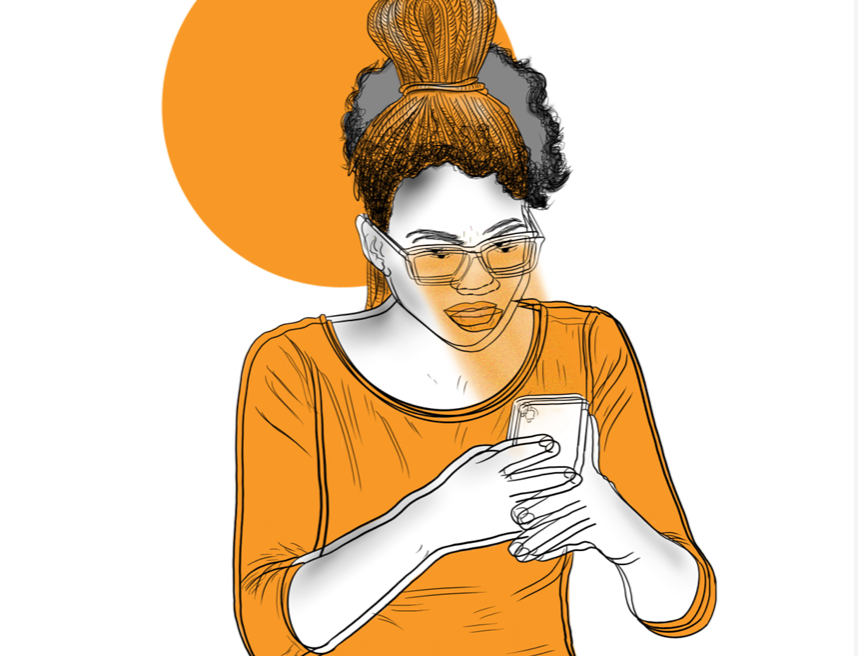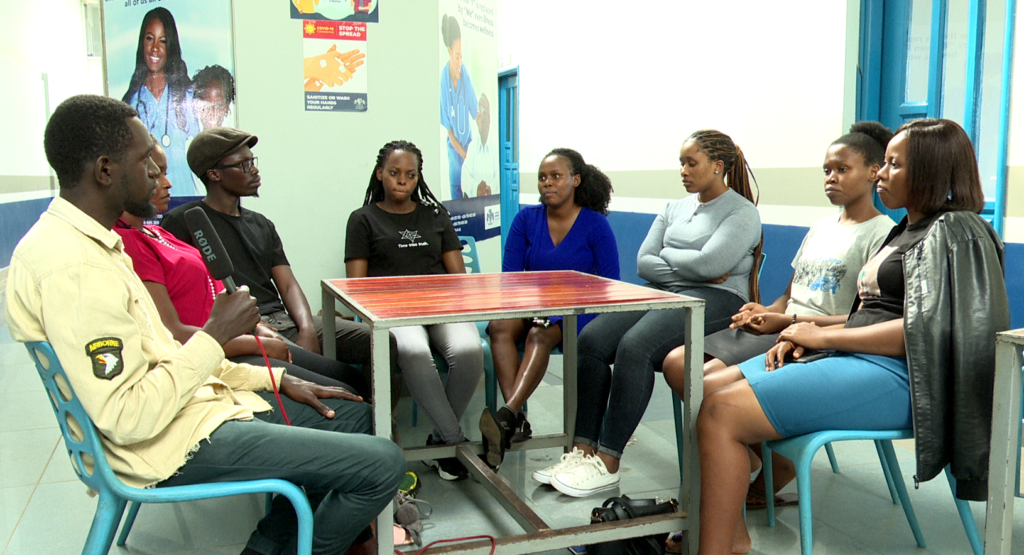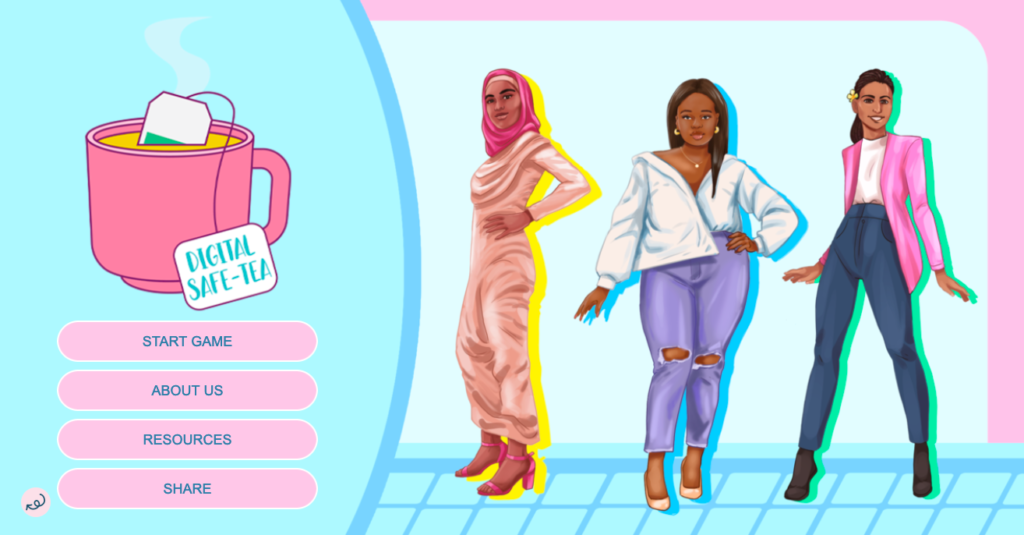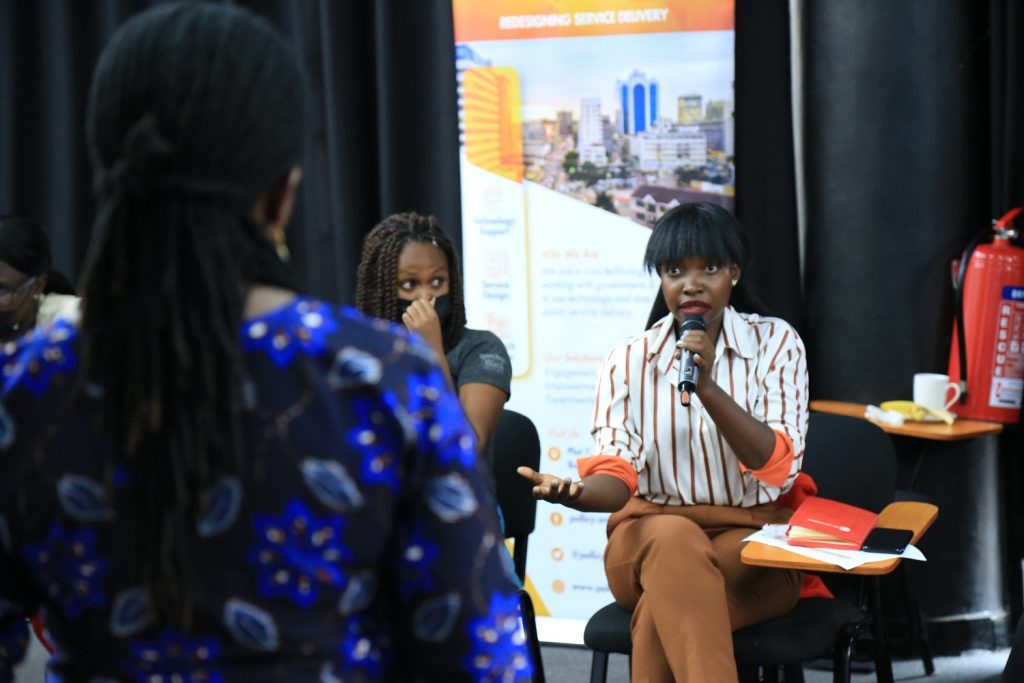Co-creating A Safer Internet:
Rights Campaigners Get Creative as Violence Pushes Women Off Internet
Story by: Hellen Kabahukya . Film and Photography by: Richard Mugambe & Rhonet Atwiine.
Story by: Hellen Kabahukya . Film and Photography by: Richard Mugambe & Rhonet Atwiine.
When Joan (not real name), heard that the Ugandan government had fully reopened the economy after almost two years of the Covid-19 lockdown, she incubated an idea to start a cloth-selling side hustle in the capital Kampala.
With an initial capital of about 800,000 shillings (close to $210), her plan was “to simply stock up and use social media” as the marketing platform.
“It was purely online. I would wear the outfits, take pictures, and post them on Facebook and Instagram. Customers would reach out for me to deliver their product if we agree on the prices,” she explains.
In the first two months, Joan’s business gained traction, making it easy for her to juggle it alongside her Bachelor of Social Science study schedule at Cavendish University in Kampala.
However, the more internet traffic it generated, the more it posted emotional stress on the 24-year-old.
“Consistently, I started to receive unsolicited sexual objectifying messages and negative comments about how I look. It was overwhelming,” she explains.
By the time the business made six months, Joan couldn’t live with the challenge. She opted out.

A graphic representation of a young woman reacting to a presumably negative comment on the internet. PHOTO SUPPLIED BY POLLICY
These stories are usual in Uganda and African internet spaces. At a Focus Group Discussion (FDG) on online gender-based violence held at Cavendish University, all female students noted that they had experienced some form of violence online like their peer, Joan.
“Every time, I log onto these platforms, I withdraw immediately because I need to remain sane,” Sarah Birungi, 24, a student of Journalism said during the discussion adding that she has had to shelve her thoughts of social media for fear of being abused.

Students at Cavendish University in Kampala pictured during a focus group discussion on online gender-based violence. PHOTO BY RHONET ATWIINE.
Whereas Uganda registered up to 40% increase in data and internet usage during and after the lockdown, digital rights campaigners say online gender-based violence increased between 2019 and 2021, pushing women off the platforms.
“Internet usage for women is very low in the region compared to men … and the key reason as to why women are not engaging so much online is online harassment,” says Bonnita Nyamwire, the research lead at Pollicy, a feminist organization that produced the report.
The survey showed that the most common type of online gender-based violence experienced in Uganda is sexual harassment, accounting for 42% of respondents, followed by offensive name-calling (24%) and stalking (17%).
“Discriminatory gendered practices are shaped by social, economic, cultural, and political structures in the physical world and are similarly reproduced online across digital platforms,” the research paper reads in part.
In the just concluded 2021 general elections for example, “women candidates experienced more trolling, sexual violence and body shaming compared to their male counterparts”, and some have had to abandon the platforms. However, about 95% of the victims did not report.

A screenshot of the Digital Safetea game developed by digital rights campaigner, Pollicy.
Offering tech teasers-
The organization has developed a game, that it believes will sensitize African techy-savvy young women about violence and how to respond to internet abuse.
Called the Digital Safetea, the game is a quick fix approach, It is built on stories from three fictitious characters Goitse, Aisha, and Dami. They are all young women from different African countries who undergo a multi of challenges but are able to maneuver through them creatively.
Digital Safetea immerses gamers into the world of these characters whereupon they are faced with digital threats like impersonation, Non-Consensual Sharing of Intimate Images which is often referred to as ‘revenge porn’.
Once presented with a scenario, they are nudged to pick their response to the threat from available choices, as a way for them to get to the next stage of the game.
As players weave through the maze of threats, the game presents them with lessons on how to navigate such threats in real life. It is being presented to different population groups as a sensitization model.
Victims of abuse like Joan have called it “the one way for you to experience the reality of this crisis presents more significant ways to address the challenge without me having to take on so much.”

Journalists share their experience on online gender based violence during a Pollicy media workshop in Kampala. Courtesy Photo
Pollicy is engaging stakeholders to mainstream internet freedom for women as “a key gender equality goal because the absence of women on the internet means their voices are not represented” according to Phillip Ayazika, the Programs Director.
However, efforts to mainstream online violence have been slow at gaining traction because of a number of cross-cutting challenges.
Rates of reporting perpetrators to technology platforms for example have been hindered by the absence of technology platforms representatives across Africa and their slow recognition of African users’ needs.
In Uganda, the 2016 Household Survey (UDHS) reported that 22% of women experience domestic violence, but no data on online gender-based violence was reported. On top of this, the country has yet to develop specific legislation or strategies against online gender-based violence.
“We need to bring them all on board to help them understand the context of digital security and why it matters. If our lives are moving online, then it’s important for us to put in place measures to ensure that people are safe online,” Ayazika says.
He has called for “an urgent need for digital security resources to be adapted to local contexts and languages and mainstreamed in educational curricula”.
Last month, President Yoweri Museveni signed into law new legislation to contain the vice. However, civil society groups are already punching holes into the document citing infringement on freedom of expression.
“There is a fine line between appropriate regulation and stifling of freedom of expression. Law enforcement personnel must be trained on a gender-sensitive digital safety curriculum to address complaints of online gender-based violence and to provide timely technical assistance, counseling, and support to women who do choose to report,” the campaigner says in a report.
Online gender-based violence has been thought to be one of the leading causes of depression among young women, and Joan experience this firsthand.
“I was in a state of fear and uncertainty. And it took a toll on me and business stopped to matter,” she explained.
As to the fact that most women are more likely to be repeat victims of online gender-based violence and are more likely to experience it in severity than their male counterparts, Joan is hoping that the world will become more fearer.
Unwanted witness, another digital rights campaigner says daunting as it is, equal access to technology is not only key for human development but a prerequisite for the growth of civil society, and its something we must all pay attention to.
It is now “training the Police’s Child and Family Unit to appreciate that violence online is as bad as violence in homes” according to the Executive Director Doroth Mukasa.
© 2022 - Media Challenge Initiative | All Rights Reserved .
© 2022 - Media Challenge Initiative | All Rights Reserved .